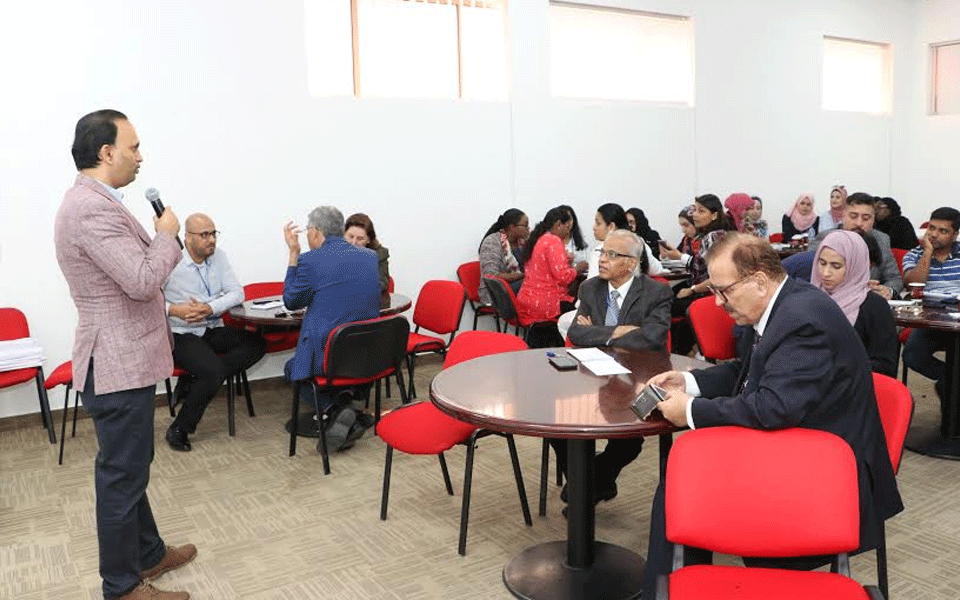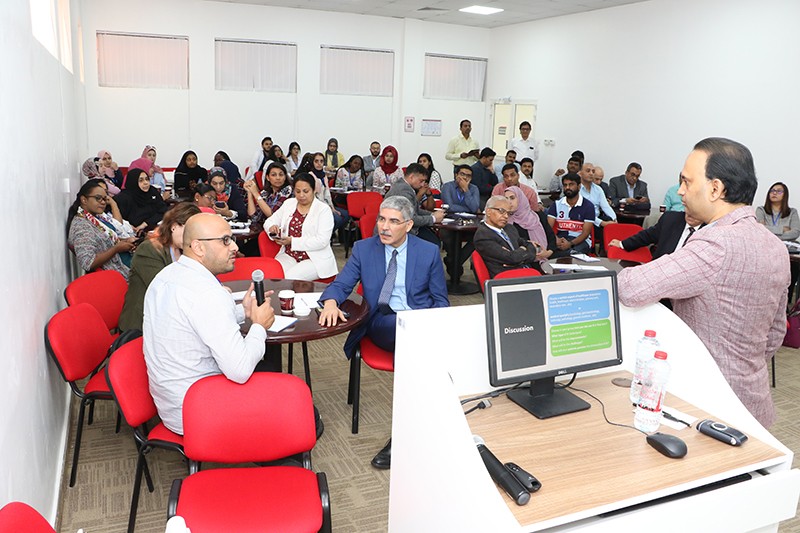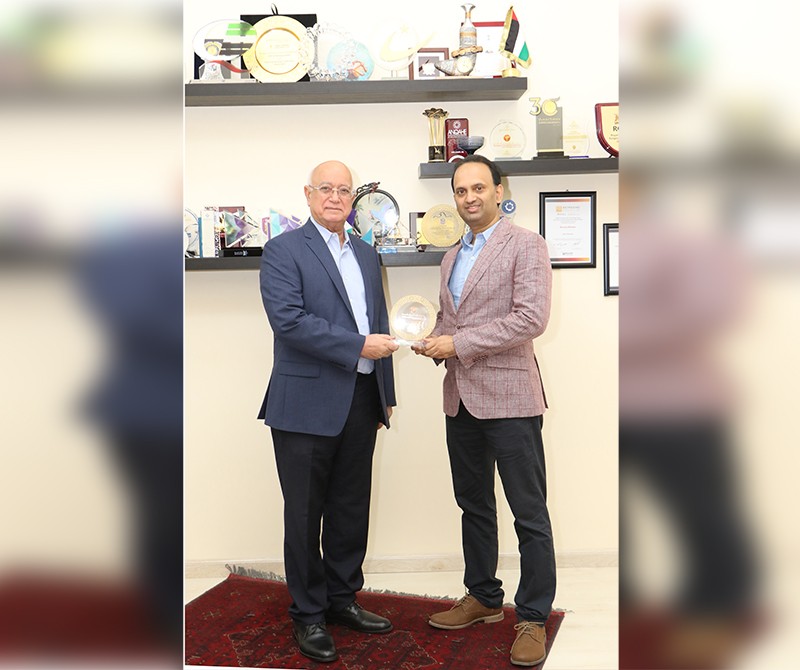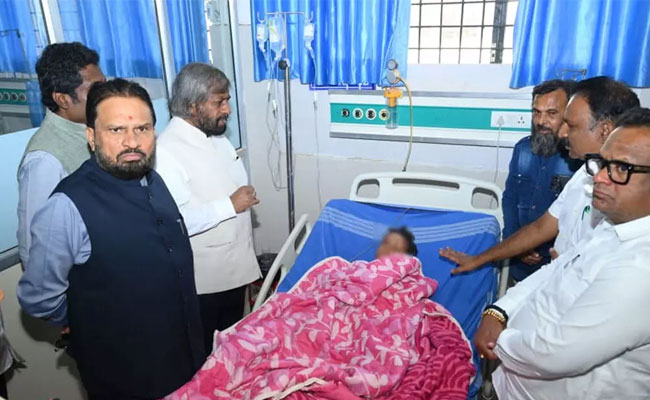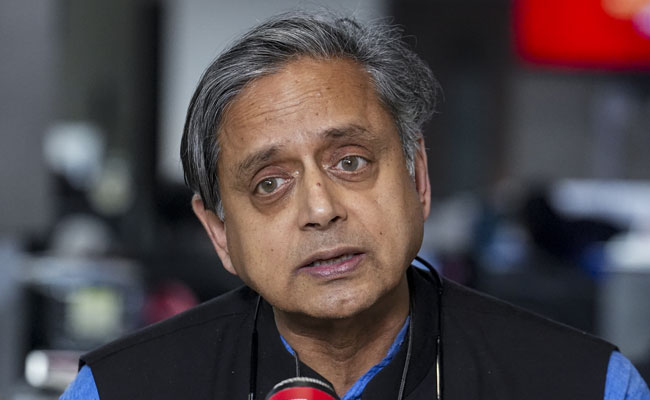►International faculty from Deakin University, Australia, conducted the opening sessions of the program at GMU, in the presence of leading academics and healthcare leaders
►The new program also comes in the wake of the UAE’s AI Strategy which seeks to deploy AI across key sectors including healthcare
In view of the rising importance of Artificial Intelligence (AI) in healthcare, Gulf Medical University (GMU), Ajman, the leading medical university in the Middle East region, has introduced a certificate program in ‘Artificial Intelligence in Healthcare’, which will equip students, researchers and healthcare professionals with the knowledge and skills to apply AI in the healthcare environment. The introductory sessions of the program was held at the Gulf Medical University campus on the 21st and 22nd of February 2020, led by visiting international faculty Dr. Sandeep Reddy, Associate Professor of Healthcare Management and Medical Informatics, Deakin School of Medicine, Melbourne and Chairman of Medi-AI, who was invited by the Gulf Medical University.
Leading academics and healthcare leaders including Dr. Mouza Al Sharhan, President - Emirates Medical Association, Ms. Amina Al Saadi, Head - Zayed Higher Organisation, Abu Dhabi and several others from all over the country attended the introductory sessions, which covered the first two modules of the 6-module program. Participants gained introductory knowledge and understanding about AI, its various techniques and tools, applications in business and medicine, challenges and solutions, image processing and object recognition, etc. The remaining sessions slated to be conducted in April and June this year. All participants will be awarded a certificate of competency by GMU, upon successful completion of all modules of the program.
Commenting on the new program, Prof. Hossam Hamdy, the Chancellor of GMU said, “Artificial Intelligence is already bringing about rapid changes in healthcare systems and practices globally, yet the healthcare industry has a shortage of professionals who have the skills and training to capitalize on this change. This new certificate program in ‘Artificial Intelligence in Healthcare’ will address this challenge by producing healthcare professionals armed with knowledge of AI, its practical applications and its potential in improving healthcare systems. The new program also comes in the wake of the UAE’s AI Strategy which seeks to deploy AI across key sectors including healthcare.”
“With the UAE government actively pursuing opportunities in AI, and top medical institutions in the country like the Gulf Medical University rightly identifying AI as an integral part of future healthcare systems, there will be increasing application of AI in healthcare to improve patient outcomes,” said Dr. Sandeep Reddy.
Let the Truth be known. If you read VB and like VB, please be a VB Supporter and Help us deliver the Truth to one and all.
Bidar: District In-charge Minister Eshwara Khandre visited the injured in the mysterious explosion that took place in Molakera village of Humnabad taluk and are currently undergoing treatment at the district hospital. The minister visited the hospital this morning and enquired about the health condition of the injured.
Speaking to reporters after the hospital visit, Khandre described the incident as deeply painful and unfortunate. “Yesterday’s explosion in Molakera village is extremely tragic. Four children sustained burn injuries, while two adults were seriously injured. One of them has been shifted to Solapur and the other to Hyderabad for advanced medical treatment,” he said.
He assured that all the injured are receiving proper medical care and that the district administration is closely monitoring their condition. “Doctors have been instructed to provide the best possible treatment to the injured,” the minister said.
Khandre said that a thorough investigation is underway to determine the cause of the explosion and identify those responsible. “The government has taken this incident very seriously. I met the Chief Minister yesterday and briefed him on the facts of the incident,” he said.
He further announced that the government will bear the entire cost of medical treatment for all the injured. “Strict legal action will be taken against whoever is found responsible after the investigation,” he assured, while appealing to the villagers not to panic

